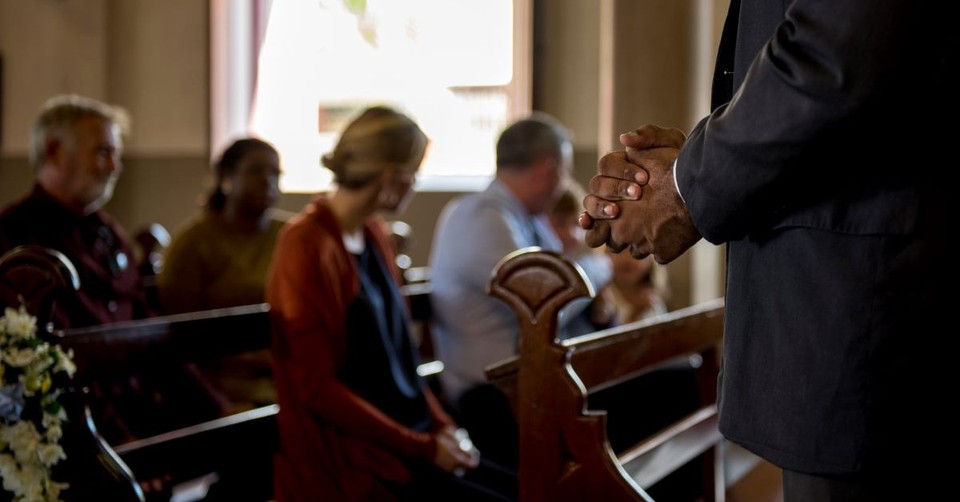Is it Wrong to Question My Pastor?

Many hold the job of being a pastor in high esteem. It is a position to be respected and honored. Historically, priests and pastors held a certain prestige amongst the people. To oversee a faith community was a noble calling – one demanding both education and personability. Due to the privilege a pastor held within the community, it was generally believed that one should never question a pastor’s decisions or preaching. After all, these were people who understood the scriptures far better than anyone else; these were the people God had chosen to declare God’s word and lead God’s people.
Many still hold to this thought. Scripture tells us that “Christ gave some to be apostles, prophets, pastors and teachers, to equip his people for works of service” (Ephesians 4:11). Being a pastor is not something that you choose, it is one you are called into. Questioning a pastor, therefore, is deemed disrespectful to the pastor’s leadership and calling.
Is this accurate? Is this biblical? Do individual members of a congregation have the right to question a pastor’s motives, decisions, or theology? These are complex questions. Ultimately, the way a pastor accepts and responds to questions and criticisms has a lot to say about the authenticity of his or her ministry. If a pastor does not welcome questions, this may be a red flag that his or her leadership is not as godly or authentic as one might suppose.
Questioning a Pastor’s Decisions
The ability to question the decisions made by a church leader is an important part of how the community of faith functions. The church is not called to be mindless in their acceptance of direction. Jesus calls his people to be “wise as serpents, but innocent as doves” (Matthew 10:16). The purity that comes with the Christian life is never at the expense of our ability to reason. Jesus never calls us to check our brains at the door. Each member of a congregation has the right, and the duty, to raise matters of question or concern whenever they arise.
Abusive pastors, however, do not welcome such questions. This is one of the clearest signs of toxic leadership. The refusal to entertain questions or concerns testifies to a lack of transparency within the pastor him/herself. Toxic leaders refuse to entertain questions about how a decision was made because all decisions are made by the pastor alone. Abusive pastors rarely consult others when making decisions, nor do they ask advice from those more experienced in ministry. Decisions are based on whether an action benefits the pastor. Once a decision is made it is not to be questioned. The pastor demands perfect and blind allegiance.
As it is the pastor alone who makes all decisions, abusive pastors treat questions as a negation of their authority and leadership. In their mind, questioning a decision indicates a lack of trust; the questioning member has not bought into their vision of the ministry. Those who pose questions of the pastor are quickly labeled dismissive or disruptive; sometimes they are driven out of the church. To justify such behavior, an appeal to the church being “of one heart and mind” (Acts 4:32) is used to silence the questioner. The implication is that questions are not merely disrespectful, they are unchristian.
This is a twisting of scripture. The early church frequently engaged in questions and discussions. We see this in several places throughout the New Testament. The book of Acts, for example, records how the apostles were questioned regarding the church’s support of widows. Luke records “In those days when the number of disciples was increasing, the Hellenistic Jews among them complained against the Hebraic Jews because their widows were being overlooked in the daily distribution of food” (Acts 6:1). Here, members of the church approach the leadership and actively question the church’s practice on an important matter. Similarly, chapter 15 tells of a council of Jerusalem wherein the apostles met to consider the question of Gentiles within the community of faith. The witness of the early church clearly involves the ability to question, debate, and reason together.
Questions do not show a lack of respect. In fact, it is just the opposite. Bringing a question to the pastor or a congregational leader shows that one is passionately committed to the church and its ministry. Voicing concerns shows that one cares about the Church’s life and livelihood. This is a good thing – and one that all pastors should welcome.

Photo Credit: ©Getty Images/Ehrlif
Questioning a Pastor’s Teaching
All churches want a pastor whose preaching is rooted in scripture. One of the primary roles of every pastor is to declare God’s word in a way that aids the congregation’s spiritual development. Many denominations require an advanced degree in the field of theology or biblical studies as a prerequisite for this work.
Sound preaching, however, is more than quoting chapter and verse. Even the devil quotes scripture when tempting Jesus away from the cross (Matthew 4:6). Even though a sermon is filled with various scriptural references, the pastor may still be preaching an unbiblical sermon. In fact, scripture confirms this possibility. Paul writes to his young apprentice Timothy that, “the time will come with people will not put up with sound doctrine. Instead, to suit their own desires, they will gather around them a great number of teachers who say what their itching ears want to hear” (2 Timothy 4:3). The false teaching that Paul describes appears biblical; it may even sound biblical. Paul, however, is adamant that teaching which leads people away from the acceptance of Christ is false and dangerous.
It is important for every individual in the church to have growing familiarity with the biblical word. We are to trust that the Holy Spirit will “guide us into all truth” (John 16:13). Posing questions about a pastor’s teaching is to take ownership of our spiritual growth. As Christians, we are to ensure that we can differentiate between “the spirit of God and the spirit of falsehood” (1 John 4:6). Authentic pastors, committed to their congregation’s spiritual growth, welcome such questions. Questions are seen as invitations to look at the biblical word in a deeper way. Authentic pastors see questions as an opportunity to journey together in faith and learning.
Toxic or abusive pastors, however, refuse to answer questions pertaining to their teaching. It is suggested that questioning a sermon is tantamount to questioning his or her spiritual authority. After all, they are the ones who have the biblical education (and understand the bible rightly); they are the ones charged with declaring God’s voice; they are the ones who God has called to the ministry. Instead of an invitation for growth, questions are considered obstructive. Abusive pastors equate God’s voice with their own.
When we examine Jesus’ teaching ministry, however, we see a radical acceptance of questions. The gospels are filled with examples of people posing questions to Jesus. Jesus encountered questions from the crowds who followed him, the Pharisees who opposed him, and the Scribes who challenged him. Even the disciples, who were committed to him as their teacher and Lord, frequently asked Jesus to explain his teachings further. Jesus never rejected these questions. Instead, he used these questions as a place to further describe God’s kingdom in people’s lives.
Questioning a sermon, an example, or a point of biblical teaching, therefore, is perfectly justifiable for any person in the church. This is the exact way the disciples lived before Jesus. Every faithful person has the right to approach his or her pastor and ask for clarification on the pastor’s teaching. Any pastor or church leader, therefore, that does not welcome questions from a member of the congregation is not abiding by the spirit of Christ.
Conclusion
John encourages the Christians of the day to “not believe every spirit but test the spirits to see whether they are from God, because many false prophets have gone out into the world” (1 John 4:1). The inability to engage in questions ultimately shows that a pastor’s focus in ministry is not on the Lord. Instead, the ministry is aimed at bolstering the self. The desire is to create a kingdom in which the individual leader is recognized as great and honorable. It is a ministry aimed at the glorification of the pastor alone. When a pastor, bible-study leader, or church elder cuts off one’s ability to ask questions, this indicates a spirit of pride within them that flies against the very words of Scripture.
Christians are to weigh their leaders against the truth and example of Christ. The way of Jesus is one where “those who want to become great must be a servant, whoever wants to be first must be the slave of all” (Mark 10:43-44). Engaging in questions about decisions or teaching is part of the way pastors serve their congregations. Abusive pastors and toxic leaders, however, declare questions as disruptive, divisive, and unchristian.
Questions are never disruptive when put forward in a calm, loving, and respectful way. Questions are never wrong when asked for the purpose of growing the church community, or one’s own personal faith. Ultimately, posing questions to the church leadership is a sign that a person has a deep concern for their Christian life. It declares one’s passionate involvement in the life of the church and their deep hope for the church’s future. In fact, asking a question about the sermon shows that an individual is paying attention to the sermon! This is something welcomed by any true and authentic pastor.
Is it wrong to question the pastor? Absolutely not! Questions ought to be welcomed and encouraged in the life of the Church. Furthermore, every true and authentic pastor, priest, or leader, will make time to engage in such questions. Authentic leaders happily explain decisions, teaching points, or sermon examples. This is to follow the way of Christ, the true head of the church.
If you are experiencing abuse of any kind, please reach out to your local authorities or call the local helpline. There are always people who are willing, and waiting, to help.
Photo Credit: ©GettyImages/Rawpixel

Originally published October 27, 2021.





